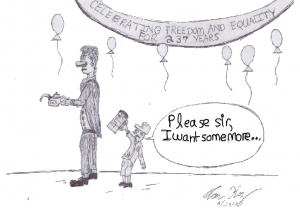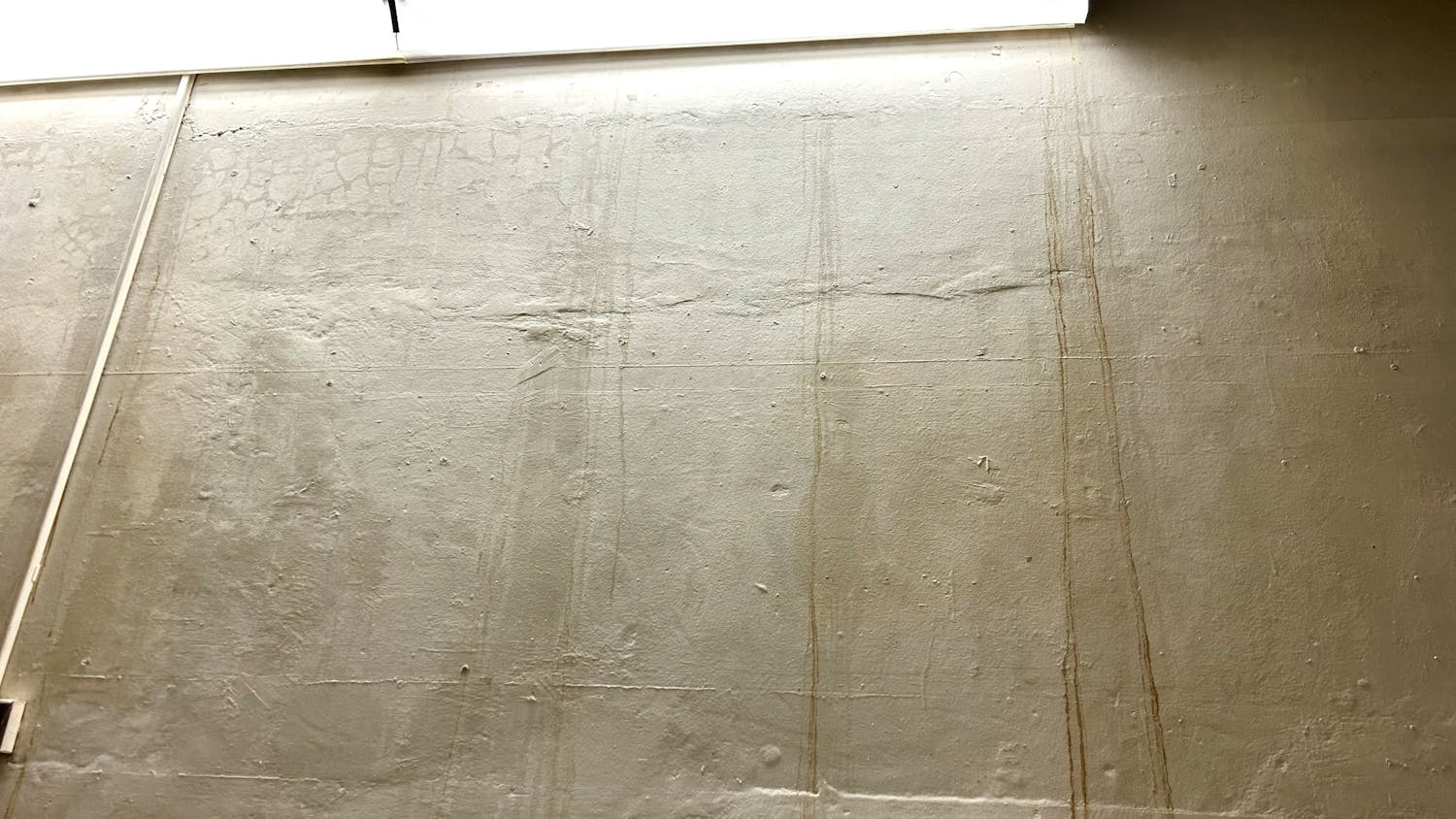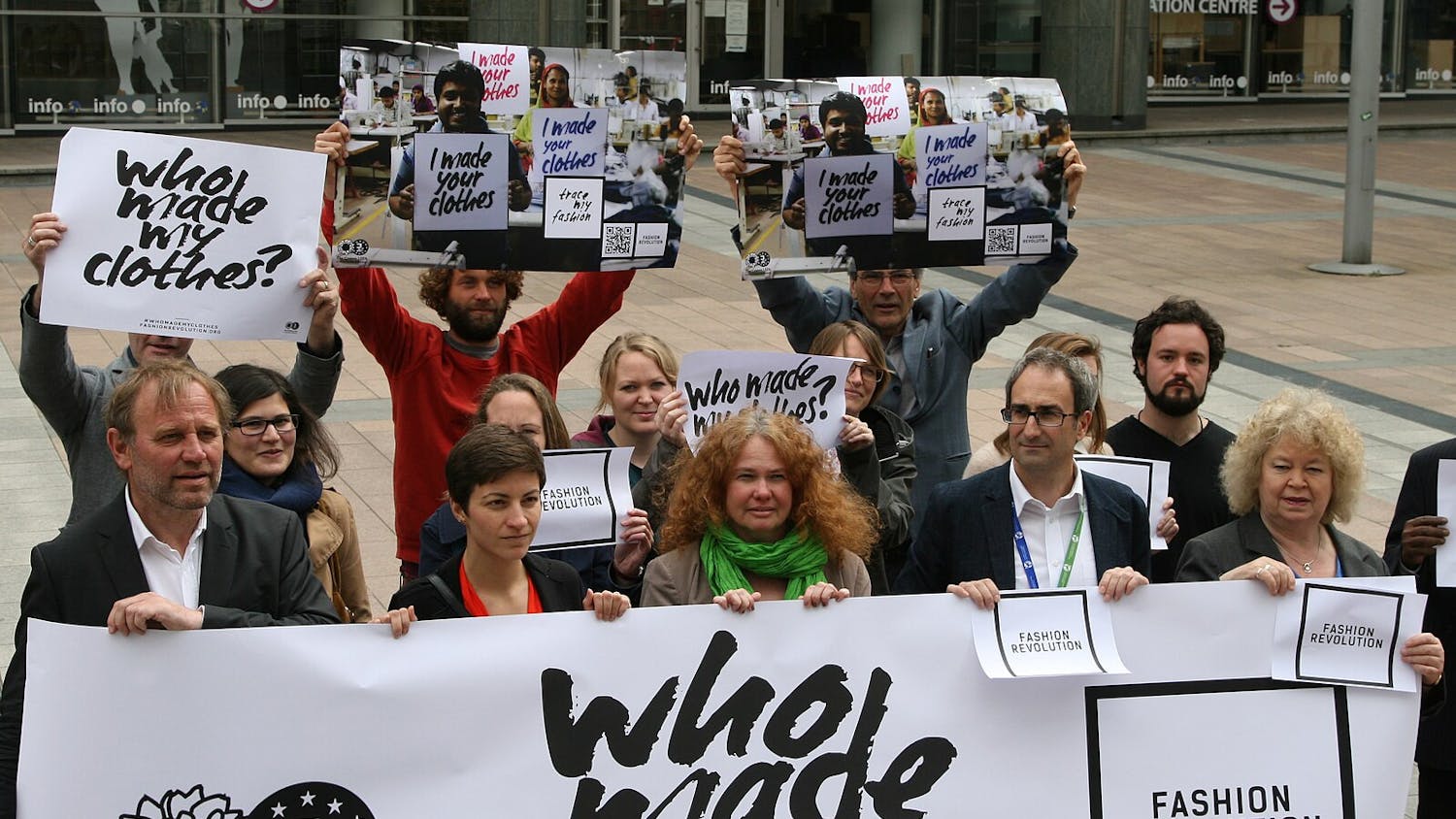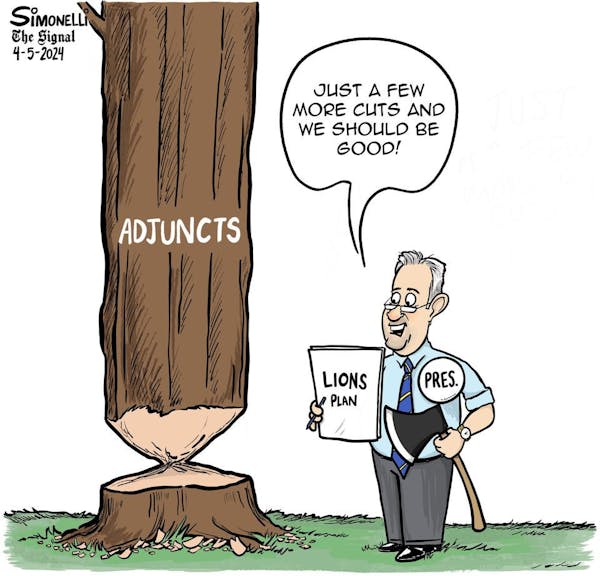By Jack Meyers
Nation & World Editor

I realized once reading my editorial over again that I might have generalized a bit. The approach I was taking was alarmingly “majority, wealthy, advantaged” versus “minority, marginalized, disadvantaged.” The reason I think it came across this way is quite clearly addressed by Ms. Lewis: it is because, as a white upper middle class man, I have certain social advantages, ones that because of my favorable status I am usually unaware of (see Peggy McIntosh in “White Privilege: Unpacking the Invisible Knapsack”). McIntosh, a research and cultural explorer, puts her realization of her own privileges into perspective: “There was one main piece of cultural turf; it was my own turn, and I was among those who could control the turf.”
In other words, those with privilege have the power to influence the system of identity.
Moreover, from a brief look at colonialism and the way that people of darker races were treated, it is obvious that treatment of the “others” has leaked into modern discriminations and prejudices (see Tzvetan Todorov). Though not everyone with privilege abuses it, there still exists a significant majority that does not realize how they are advantaged on a daily basis. The most attainable remedy to structural racism, therefore, as Lewis suggests, is changing the way that “we,” or those with the ability to change, view others.
If those who need help are not seen as opposites to ourselves, but as peers, we will certainly feel a greater liability for their suffering: the “we” could easily be in the “others’” place. Unfortunately, the way that society has constructed racial identity is so that some groups are given the shorter stick, so to speak: worse housing, less access to jobs training and skill attainment, and of course, lower income jobs, for example.
Yet, it does not need to be this way.
As Lewis points out, on the whole, our society puts people into categories that highlight the ways in which we are different, instead of focusing on what we all have in common.
But we also have to be practical about this. It cannot be a bottom-up approach, as our society inherently favors the dominant races, sexualities, classes and genders. We have to change the way that those at the top see others because, for the most part, they are the ones with the power to make a positive difference.
Yes, an initiative can come from the bottom, but unless those with the most capacity for change understand their own privileges and how discrimination affects them too, the bottom will remain at the bottom of our so-called societal hierarchy. As Amaney Jamal of Princeton University said at a recent talk on Muslims in America, “it is impossible for the minority to turn the tide alone.”
With that said, I would like to reiterate what I aimed to communicate in my editorial: communication is key, but without a level head and informed decision-making, nothing will ever get done. For example, you can’t simply say ‘poverty is bad, let’s fix it’ and expect positive results. You must know why poverty exists in a given area: why is the population unemployed or underemployed? What industries are failing and could policies to help diversify towards new ones increase employment? Could increased state funding to schools help the situation? Is it an issue of access to education or is it possibly a structural issue of race or ethnicity? Without practical answers to these questions, the gap between “us” and “them” will remain as it stands.
In order to provide the disadvantaged with a better life, we as a society must figure out who exactly needs an extra boost to succeed and what has led to their unfavorable conditions (i.e. history, economic demands, access to employment, etc.). That said, education on privilege is essential, but so is awareness about the way that people live and thrive — or do not.






